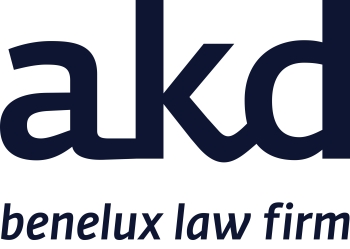The international carriage of goods by rail is governed by the Uniform Rules Concerning the Contract of International Carriage of Goods by Rail (CIM) in Western and Central Europe, the Middle East and North Africa. The CIM provisions have also been incorporated into Dutch national law regarding rail carriage. The Convention on the Contract for the International Carriage of Goods by Road (CMR) liability regime is based on the CIM's predecessor. Dutch case law regarding the interpretation of the CIM is limited. By contrast, the Supreme Court has produced a rich body of case law on the interpretation of the CMR. The Rotterdam court recently held that two landmark Supreme Court rulings on liability under the CMR also apply to rail carriage liability under the CIM.
A train with five wagons containing acrylonitrile, a highly poisonous and flammable chemical, was derailed near Wetteren, in Belgium, when the driver crossed switches at double the allowed maximum speed after missing a warning sign. The incident led to a serious fire, with the attendant risk of an explosion and environmental pollution.
DSM, the manufacturer of the hazardous cargo, claimed compensation from DB Schenker, the company contracted to perform the carriage. DSM, which offered to assist with the clean-up operation following the accident, claimed compensation for:
- the lost wagons;
- the clean-up costs; and
- all further damage suffered as a consequence of the accident.
DSM also demanded that DB Schenker indemnify it in respect of third-party claims. The damage to the hazardous cargo itself had already been settled and was therefore not included in these proceedings.
DB Schenker countered by maintaining that no damages other than those foreseen under the CIM could be claimed as, pursuant to Articles 30.1 and 41 of the CIM, further actions in respect of liability, on whatever grounds, were excluded.
The CIM was specified as the applicable regime in the contract, which also contained a choice of law clause providing for the application of Dutch law. For extra-contractual claims, application of the EU Rome II Regulation (864/2007) also facilitated the applicability of Dutch law.
The Rotterdam court held that DB Schenker, as carrier, was liable under Article 24 of the CIM for the damage resulting from the loss of the wagons, which were part of the cargo offered for transportation as recorded in the consignment note.
In respect of the clean-up costs and other damage suffered by DSM as a result of the accident, the court noted that the applicable liability regime for rail transportation (the CIM) does not preclude further damages being awarded. It therefore saw no reason to deviate in rail transportation cases from the Supreme Court reasoning in the CMR road transportation rulings in Cargofoor v RTT (ECLI:NL:HR:1994:ZC1333) and Schenker v Transfennica (ECLI:NL:HR:2015:3624). In those cases, the Supreme Court had held that the CMR liability regime is not exhaustive, as the CMR covers only damage to carried goods and delay during transit.
According to the Supreme Court, a CMR carrier may be liable for other damages or costs under the national law that applies to the contract of carriage (insofar as the CMR does not already deal with such liability). In such cases, the CMR carrier cannot invoke the CMR limitation.
The Rotterdam court noted that the regime established in Title III of the CIM is not exhaustive either, because – in addition to delay – it deals only with a rail carrier's liability for loss of or damage to goods. The clean-up costs and other damage suffered by DSM as a result of the accident did not fall within the scope of Title III of the CIM and were therefore governed by the national law that applied to the contract of carriage.
The Rotterdam court found DB Schenker to be liable under the applicable general Dutch law for the clean-up costs and other damage suffered by DSM as a result of the accident, because the accident was caused by errors on the part of the driver who had been in DB Schenker's service.
The Rotterdam court held that the clean-up costs had a sufficient causal connection with the rail accident and noted that DSM did not unnecessarily incur costs when offering its specialist help, but rather adopted a position of social responsibility. The court added that, from a legal perspective, it would be unacceptable to deem the costs thereof to be for DSM's own account, as it would thus have contributed to the damage.
Rail carriers and their liability insurers should be aware of the implications of the Rotterdam court decision. Rail carriers are advised to include in their contracts a separate limitation of liability to cap or exclude all liabilities not governed by the CIM or mandatory national transportation law. Further, third parties not bound by a contract or general terms and conditions could still hold the carrier fully liable. Therefore, carriers should also include in their contracts an indemnity clause, pursuant to which the principal of the carrier must indemnify it for any third-party claims not based on the CIM or mandatory national transportation law.
For further information on this topic please contact Rutger van Dijk at AKD by telephone (+31 88 253 5000) or email ([email protected]). The AKD website can be accessed at www.akd.nl.
This article was first published by the International Law Office, a premium online legal update service for major companies and law firms worldwide. Register for a free subscription.


